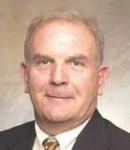January 9, 2007

Cameron, S.C., cotton grower Edward Monts (Monty) Rast Jr. comes from a long-line of Lutheran German farmers, some of whom still farm on original land grants. Though proud of his ancestry, Monty Rast is a new breed of farmer/businessman, who has made a difference in the South Carolina farm economy.

RAST
He grew up in an 1820s house that was at one time a stagecoach stop when Charleston was still the state capital. Energetic and born to lead, Rast graduated from the Citadel, serving on the President’s Advisory Committee and was the president of his senior class, among other honors.
After a brief stint as a property tax appraiser for the South Carolina Tax Commission, he returned to the family farm in 1979 to farm land that was being operated by his uncle and father.
In 1983, Monty decided to try farming on his own. He began farming with his father and uncle, who have been compared to the characters in the movie Old Lions. After some tough going under the watchful eyes and frequent friendly wrath of the Old Lions, he is now farming 900 acres of cotton and 500 acres of peanuts.
These efforts have led to his selection as the winner of the 2007 Farm Press High Cotton Award for the Southeast Region.
“This area of South Carolina has a number of excellent farmers, and there is a lot of competition for land”, Rast states“. Being a recent college graduate and not having an inheritance to finance my farming venture, it required some innovative business skills to survive.”
By the late 1980s he was well on his way to making his own name in the cotton business. He was elected to the National Cotton Council leadership Class and South Carolina Farm Bureau Young Farmer Chairman.
Monty Rast is a modern generation farmer and businessman with diversified interests. One must be current on all agricultural issues, domestic and foreign, as well as being creative to make a living farming in today’s world. While much about farming has changed over the years with mechanization and modernization, one constant has remained the same — farming, is a family business.
“Our farming operation requires assistance and support from our entire family,” Monty says. His wife Kathy, three daughters Erin, Ansley, and Eliza and son, Walker are frequently asked to help with everything from moving equipment to driving tractors. “Maybe this is why farming is truly one of the grassroots industries of our country,” he says, “it is a tangible profession in which everyone is able to take ownership.”
He and three area farmers combined to establish Carolina Peanut LLC in 2002, a peanut buying point located in Cameron S.C. “We became interested in growing peanuts for a rotation crop with cotton, because we were having so many problems with nematodes,” he says.
“Corn and soybeans weren’t economically viable cash crops at the time, and peanuts, when rotated with cotton, boosted cotton yields over 200 pounds per acre. He says peanuts have been an effective second crop. “We have been fortunate to have such good farmers as our customers. Our goal as a buying point is to always put our farmer’s customer interest first,” Rast states firmly.
Though business comes naturally to Rast, cotton is in his blood. “For as long as I can remember my family grew cotton and my father owns a cotton gin that I help him manage from time to time. Up until the last farm bill, cotton was a profitable and enjoyable crop to grow,” he says.
Taking care of his land has always been incorporated into his farm plan. When Roundup Ready cotton varieties first became available in the late 1990s, he switched from conventional to strip-tillage. “I can see a big increase in the soil’s ability to hold nutrients, and in some cases we have been able to avoid putting in terraces and erosion control drainage ditches,” he states.
Since he began strip-tillage and crop rotation, cover crops have provided an excellent agronomic practice, and are instrumental in helping him bring peanuts into his crop rotation.
In 2004, he added a GPS system, which has been instrumental in helping specifically apply fungicides and herbicides to bring substantial savings to both cotton and peanut production costs.
“We can drive, using auto steer, without end row markers or recognition of where row patterns are, allowing our cover crop to mature completely and give us maximum root mass to hold moisture in the soil,” he says.
“We like our cover crop to be standing, rather than lying down. We use an RMC strip-tillage rig with a 15-degree shank, which allows us to run through more dense cover. We pull a John Deere 7300 planter behind the strip-tillage rig, with no row cleaners. Strip-tillage has been a part of his farming operation for nearly a decade. Some of his neighbors still use conventional-tillage and by comparing yield data, Rast says he has seen no yield drag from his tillage system.
Some of his farm land has steep-faced terraces, and he has put in waterways and filtration borders, especially on highly erodible areas. Incorporating wildlife conservation into his farming practices has made Rast keenly aware of reducing pesticide use and improving field border areas.
Reduced-tillage, reduced chemical applications and additional filter strips have helped to maintain a healthy wildlife population which in turn enhances the value of the property.
Without a doubt, the next farm bill will affect who stays in the cotton business and who doesn’t Rast predicts. The future of farming, at least in our state, will be dramatically affected by this legislation.
International trade will be the future of cotton, he states. We must work diligently every day to protect our export markets. With 16 million out of 20 million bales now going offshore, this will be a critical issue, Rast points out.
Management will be a critical factor in dealing with escalating production costs, he says. He now has 50 percent of his cotton under irrigation. Running pivots and farm equipment with diesel that is made from soybean oil, will be a big decision in the future.
Better management, he says, will help growers deal with such production issues as glyphosate resistant weeds. “There is no question that we must do a better job of crop rotation and diversifying our herbicide use,” he says. These are management factors that farmers have in their power to manipulate. Some of the government decisions that affect us are more difficult for farmers to control, he says.
Like so many of today’s farmers, Rast went to college to study business. His business aptitude is now paying off equally large dividends as are his farming skills. He sums up his business/farming success with a phrase his father drilled into him from an early age. “My father always said it is easy to make money, but hard to hold onto it.” Rast recalls.
Throughout his farming career, Monty Rast has been able to make a reasonable living doing what he loves to do — farm. He constantly thinks about ways to improve the efficiency of his operation. He shares these ideas with other farmers and through various professional board positions. Monty is always looking to promote agriculture in South Carolina and stays focused on the future of the South Carolina farmer.
e-mail: [email protected]
About the Author(s)
You May Also Like






